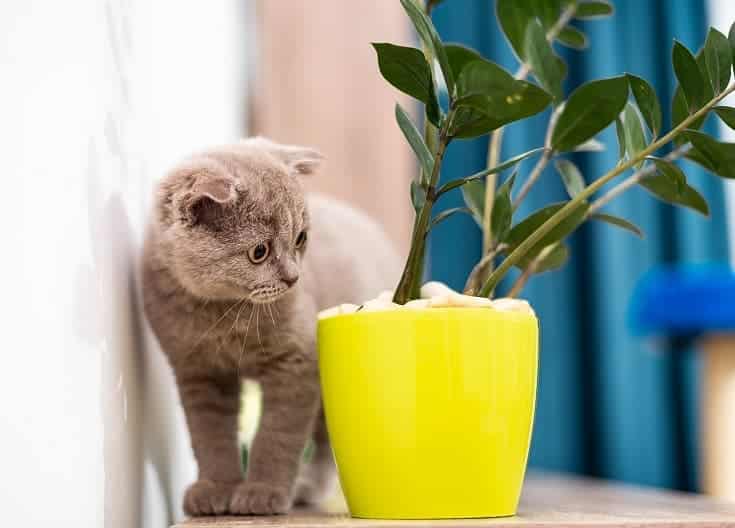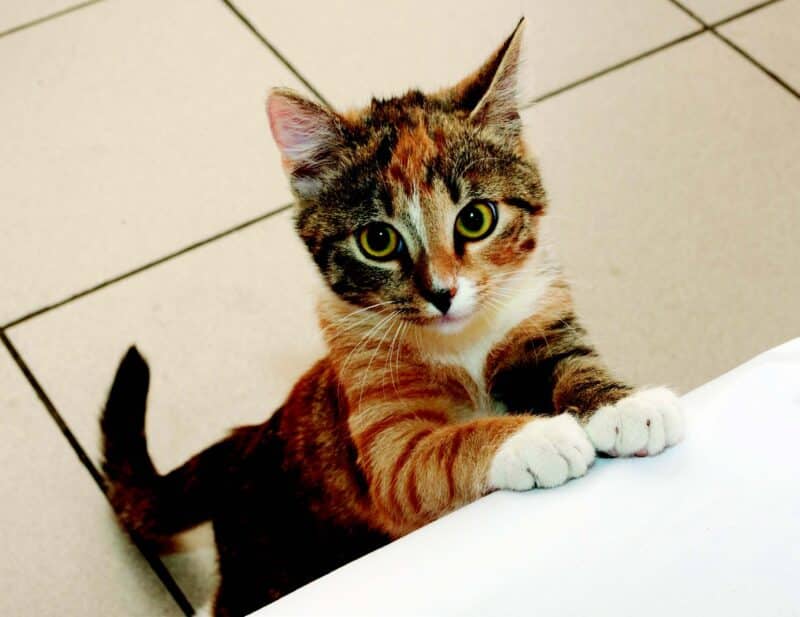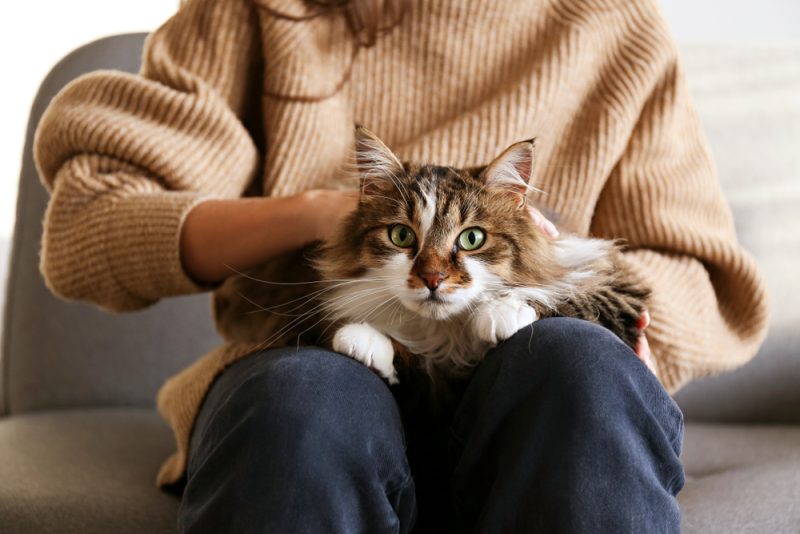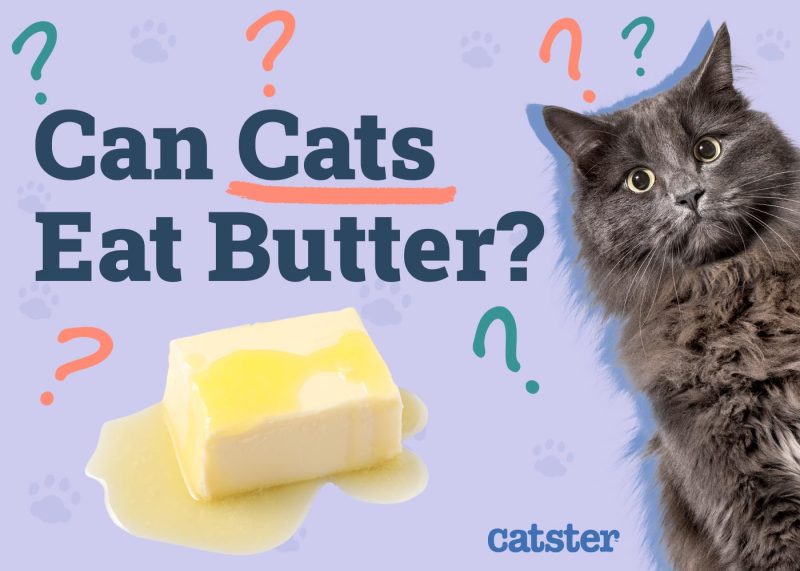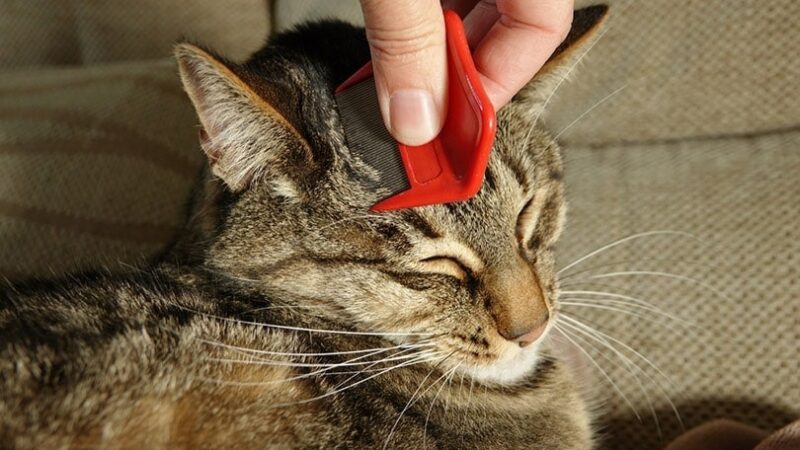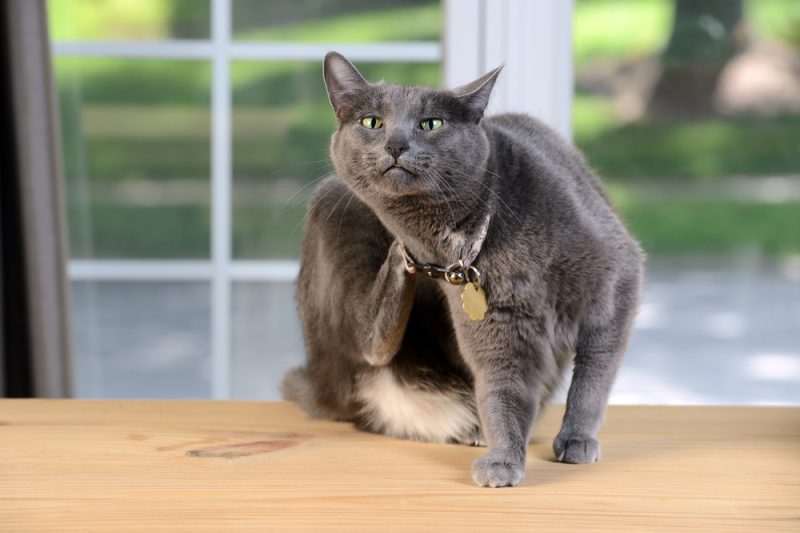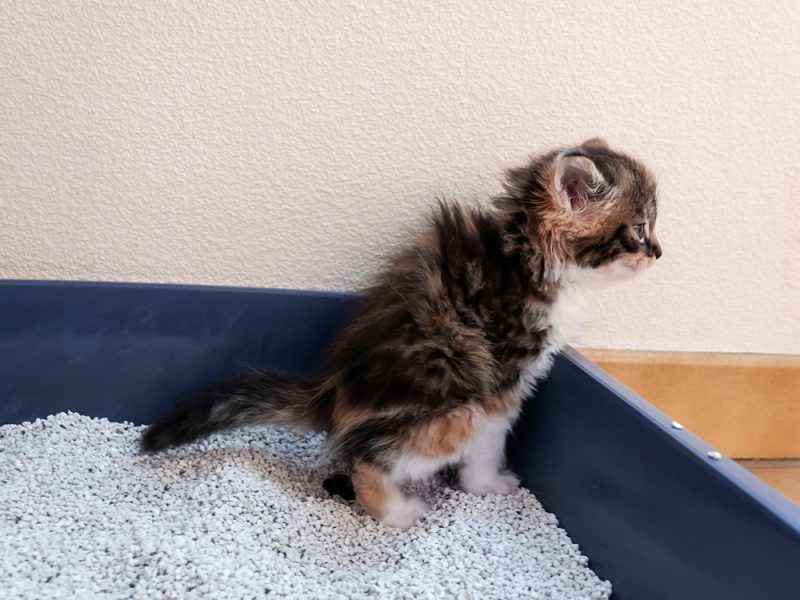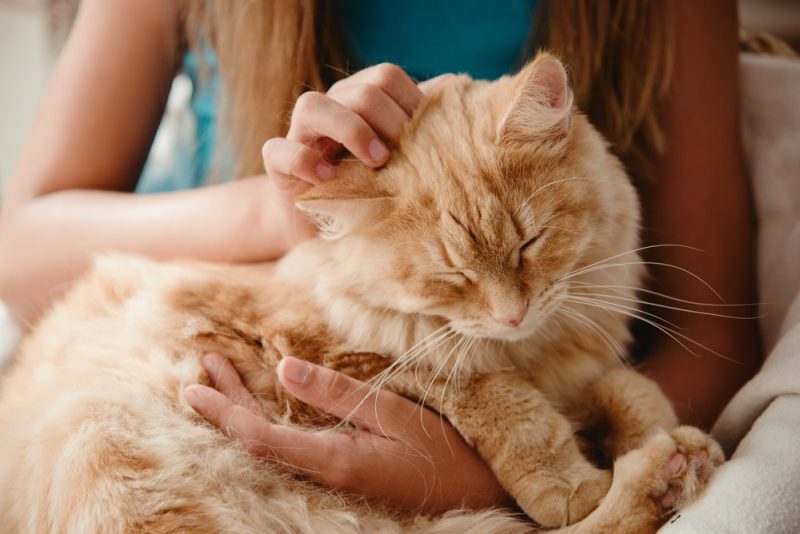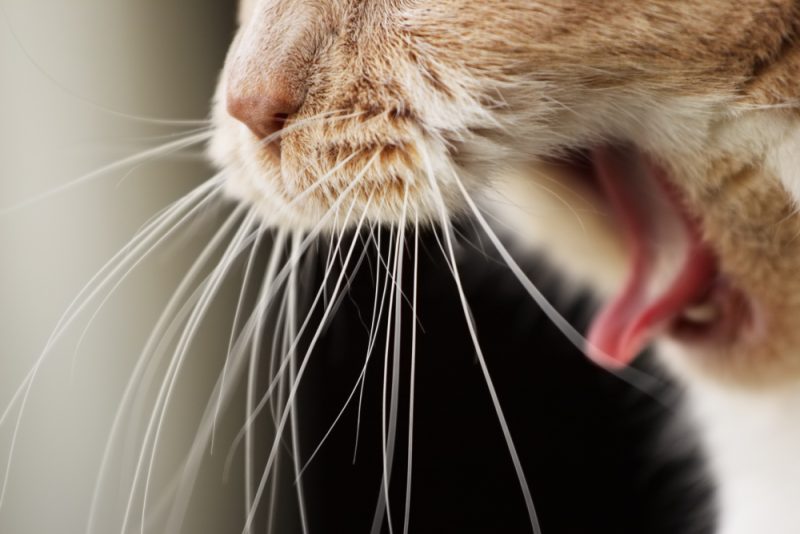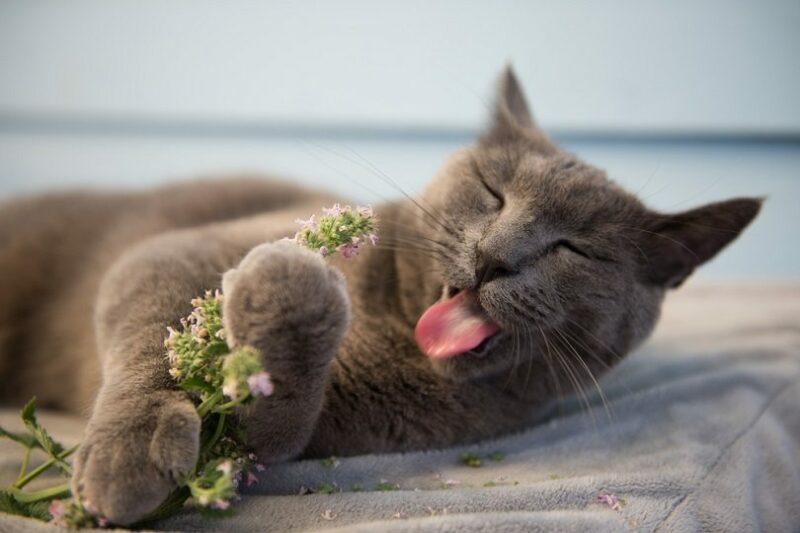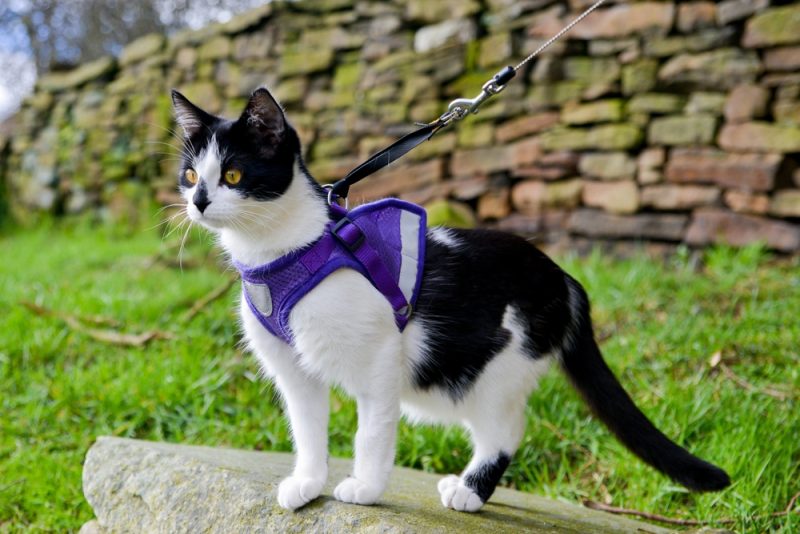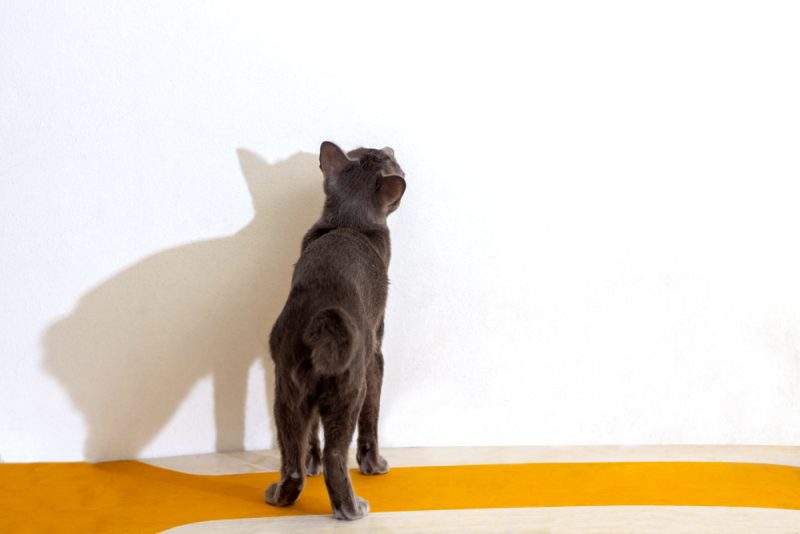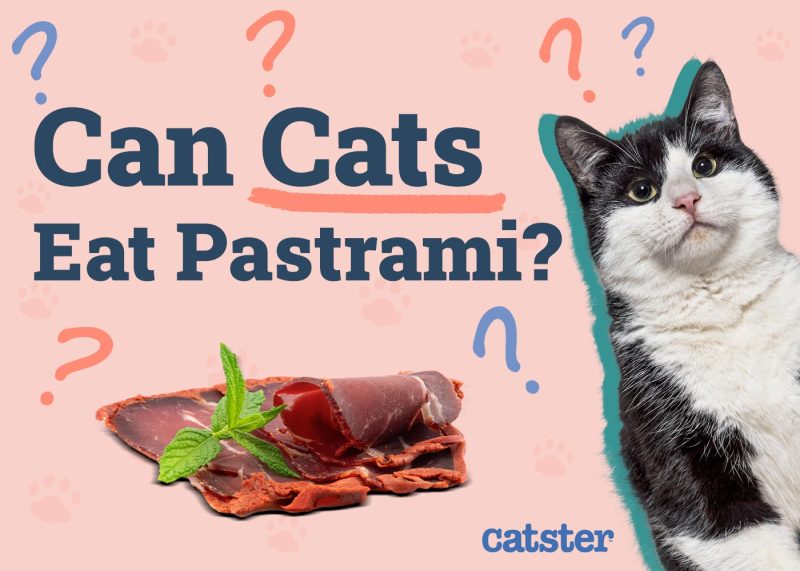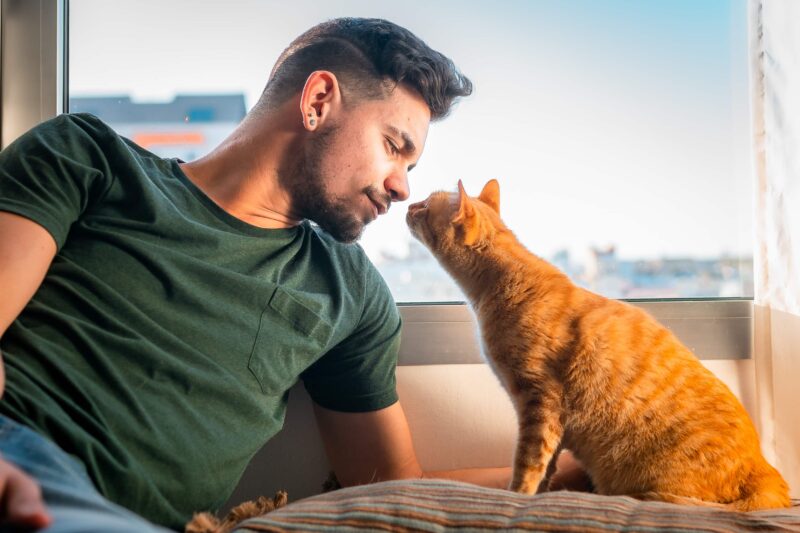In this article
Cats are strict carnivores, preferring to hunt down small prey like mice or birds. However, sometimes you might find your cat snacking on some leaves in your home or garden. Should you stop them from doing this?
It depends on what plant it is because some plants are toxic to cats, and even the toxicity can vary from some parts of the plant to others. Let’s investigate this issue and find out more.

Why Do Cats Eat Plants?
While the reason cats eat or chew on plants isn’t entirely known, there are some speculations around the subject.
- For added nutrients, like fiber
- They like the taste (hello, catnip!)
- They are bored
- The fluttering leaves attract their attention
This behavior might be fine with you, but you need to know which plants are toxic for cats in order to know for sure if it’s okay or not.
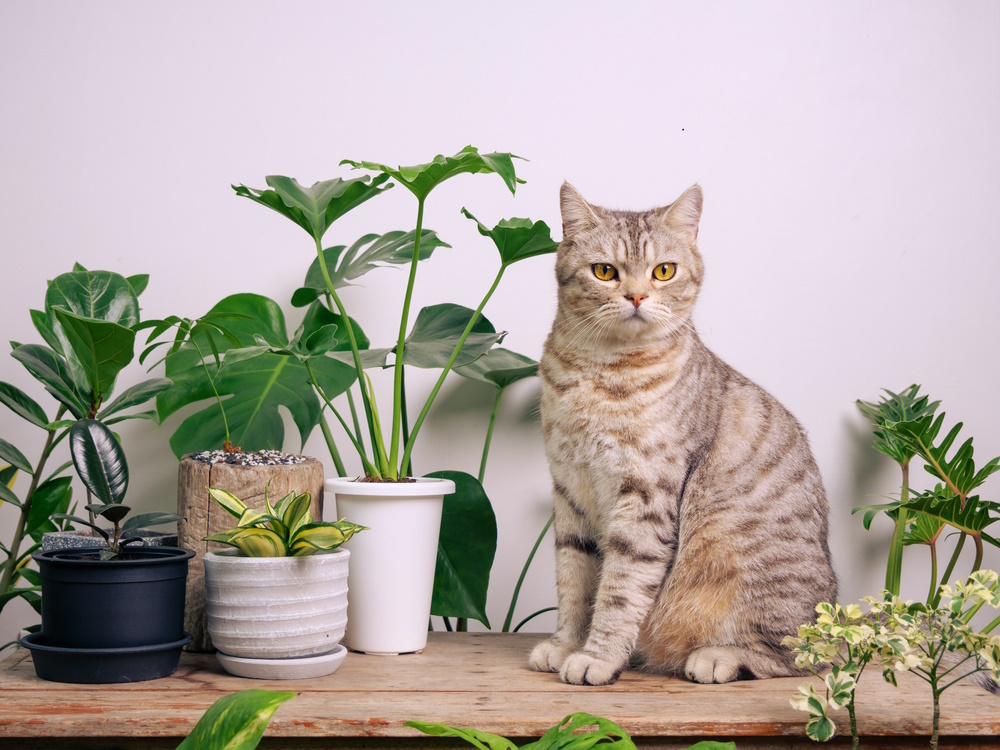
Plants That Are Toxic for Cats
You should assume that all parts of a toxic plant are bad for your cats: leaves, flowers, stems, and all. Here’s a list of plants that are toxic for cats, according to PetMD:
- Amaryllis
- Autumn Crocus
- Azaleas and Rhododendrons
- Castor Bean
- Chrysanthemum, Daisy, Mum
- Cyclamen
- Daffodils, Narcissus
- Dieffenbachia
- English Ivy
- Hyacinth
- Kalanchoe
- True lilies
- Lily of the Valley
- Marijuana
- Oleander
- Peace Lily
- Pothos, Devil’s Ivy
- Sago Palm
- Spanish Thyme
- Tulip
- Yew
You should avoid having any of these plants in your home or garden. If you are concerned about the health and well-being of your pet, seek veterinary advice for the best course of action.
If you need to speak with a vet but can't get to one, head over to PangoVet. It's an online service where you can talk to a vet online and get the advice you need for your pet — all at an affordable price!


What Happens if My Cat Eats a Toxic Plant?
A cat who comes into too close contact with or ingests a toxic plant might display signs of irritation, swelling, and itchiness around the face. If your cat ate the plant, the reaction could be happening inside the stomach or intestines, and you will most likely see drooling, diarrhea, and/or vomiting.
These are the least serious signs a cat will display. Depending on the plant, you may see failure of internal organs like the kidneys with any form of contact with true lilies. When this happens, the situation can turn fatal, even with proper immediate care.
These more serious signs include labored breathing, difficulty swallowing, excessive or absent urination, and irregular heartbeat. Get your cat some emergency help right away if you see these signs.
How Do I Keep My Cat From Eating Toxic Plants?
One surefire way to keep your cat from eating toxic plants is to remove the plant from your home or place it in a spot that is completely out of reach from your cat. This may prove to be a difficult task, though, as cats are known to get into every nook and cranny of any space.
Another way to discourage this behavior is by offering plants that are safe for your cat to eat, like catnip or wheatgrass. Plant it in a spot where your cat will see and enjoy it.
One final way to keep cats from eating toxic plants is by preventing boredom. Make sure there are plenty of toys to keep your cat occupied and out of trouble.

Conclusion
It could be really frightening to discover that your home contains plants that are harmful to your cat. We hope we have informed you thoroughly on which exact plants are not good for your cat and how to keep your cat away from these plants.
See also:
- Are Spider Plants Toxic to Cats? What You Need to Know
- Are Snake Plants Toxic to Cats? What You Need to Know!
Featured Image Credit: Stenko Vlad, Shutterstock
